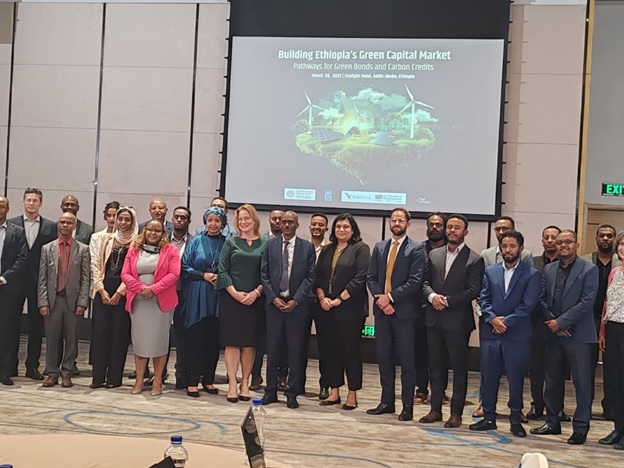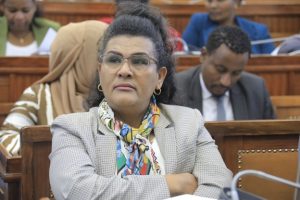
-Ethiopia faces 1.5% GDP loss annually due to climate risks
ADDIS ABABA – Strengthening institutional capacity, policy frameworks, and public-private partnerships (PPP) is crucial for attracting climate investors to Ethiopia’s green bonds and carbon credit markets, according to Ethiopian Capital Market Authority (ECMA) Deputy Director General Esayas Kassa (PhD).
A workshop held yesterday under the theme :“Building Ethiopia’s Green Capital Market: Pathways for Green Bonds and Carbon Credits”—organized by FSD Ethiopia, ECMA, UNDP, and FSD Africa—focused on establishing the necessary frameworks, skills, and partnerships to develop Ethiopia’s green capital market.
Speaking at the event, Esayas Kassa emphasized the importance of creating an enabling environment to attract both domestic and international investors to finance climate-resilient development.
He noted that aligning economic strategies with climate resilience, offering investment incentives, and unlocking private sector potential are essential to driving Ethiopia’s green growth.
“This workshop marks a pivotal step toward establishing Ethiopia’s green finance economy through the development of green bonds and carbon credits,” he stated. He further highlighted that technical expertise, policy engagement, and resource mobilization are key elements in shaping Ethiopia’s green finance ecosystem.
Esayas also pointed out that Ethiopia loses 1.5% of its GDP annually due to climate risks, with projections indicating this could rise to 5% by 2040. Despite this, Ethiopia has mobilized 2 billion Birr in climate finance in recent years, he added.
For her part, FSD Ethiopia CEO Hikmet Abdella reaffirmed the country’s commitment to sustainable growth through initiatives such as the Climate-Resilient Green Economy (CRGE) strategy and the Green Legacy program.
She explained that Ethiopia, with a GDP of 163.7 billion USD and a population exceeding 120 million, remains highly vulnerable to climate risks due to its strong reliance on agriculture. To meet its ambitious nationally determined contribution (NDC) target—which aims to reduce emissions by 68.8% by 2030—the country requires approximately 316 billion USD in financing.
“Green financial instruments, including green bonds and carbon credits, are not just options but imperatives,” Hikmet emphasized.
BY ASHENAFI ANIMUT
THE ETHIOPIAN HERALD SATURDAY 29 MARCH 2025




